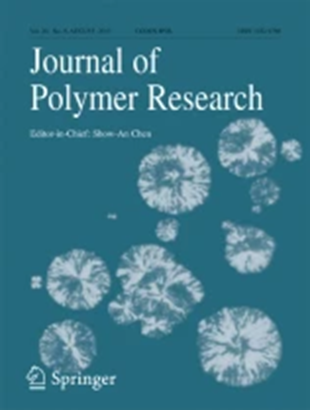Mechanical and thermal behavior of PBAT matrix composites filled with lignin
Abstract
In this study, lignin particles of micro and sub-micro sizes were respectively incorporated into biodegradable poly(butylene adipate-co-terephthalate) (PBAT) to fabricate lignin/PBAT composites through a process involving mini-extrusion followed by injection molding. The thermal stability, mechanical properties, and heat aging behaviors of the composites were comparatively analyzed. The obtained results revealed that the size of lignin achieved through air stream milling was reduced to the sub-micron level, exhibiting a narrower distribution range compared to micro-lignin obtained via ball-milling treatment. The increase in filler content (0–20 wt%) leads to a greater enhancement in the growth degree of glass transition temperature (Tg) and crystallization temperature (Tc) for sub-micro composites compared to micro composites. The incorporation of sub-micron lignin facilitated the enhancement in interfacial compatibility between the PBAT matrix and the filler additive, as evidenced by micromorphology analysis. It is directly reflected in the improvement of mechanical properties and heat aging behaviors of the composites. The performance of 10wt% sub-micro lignin/PBAT composites, particularly in terms of strength and stiffness, significantly surpasses that of neat PBAT after undergoing a 168 h physical thermal aging process. These findings contribute to a deeper understanding of the intrinsic relationship between the size effect and the thermal resistance and mechanical properties, as well as highlight the potential application of air stream milling in PBAT-based composites.

 求助内容:
求助内容: 应助结果提醒方式:
应助结果提醒方式:


